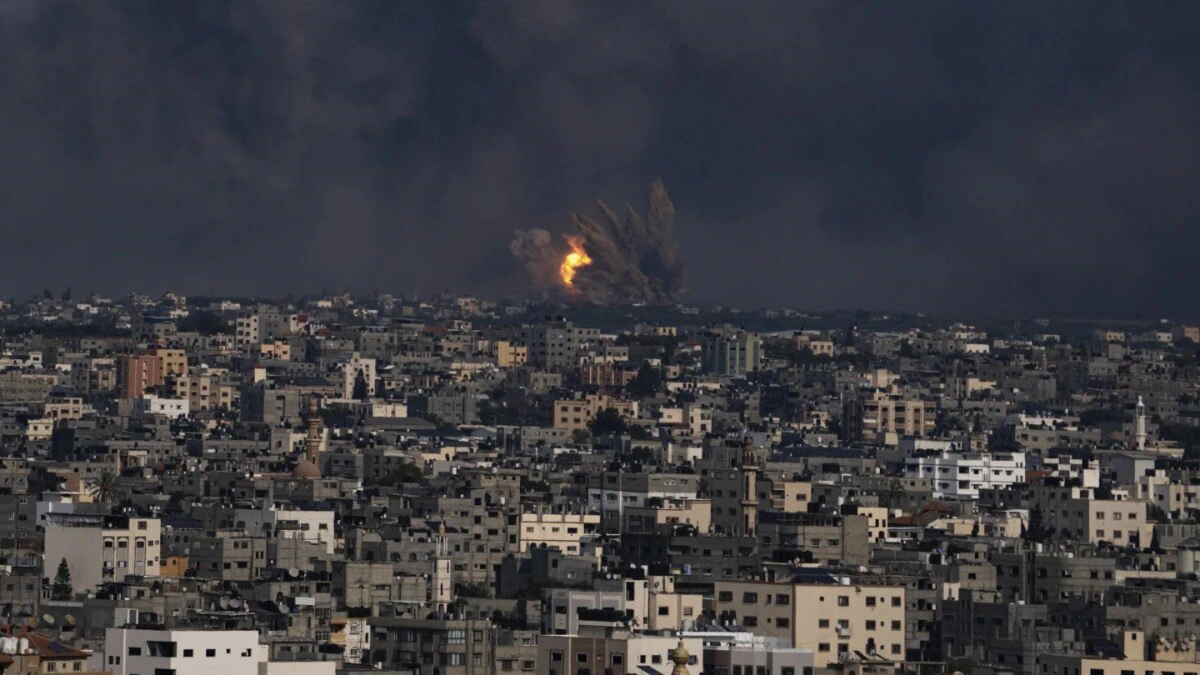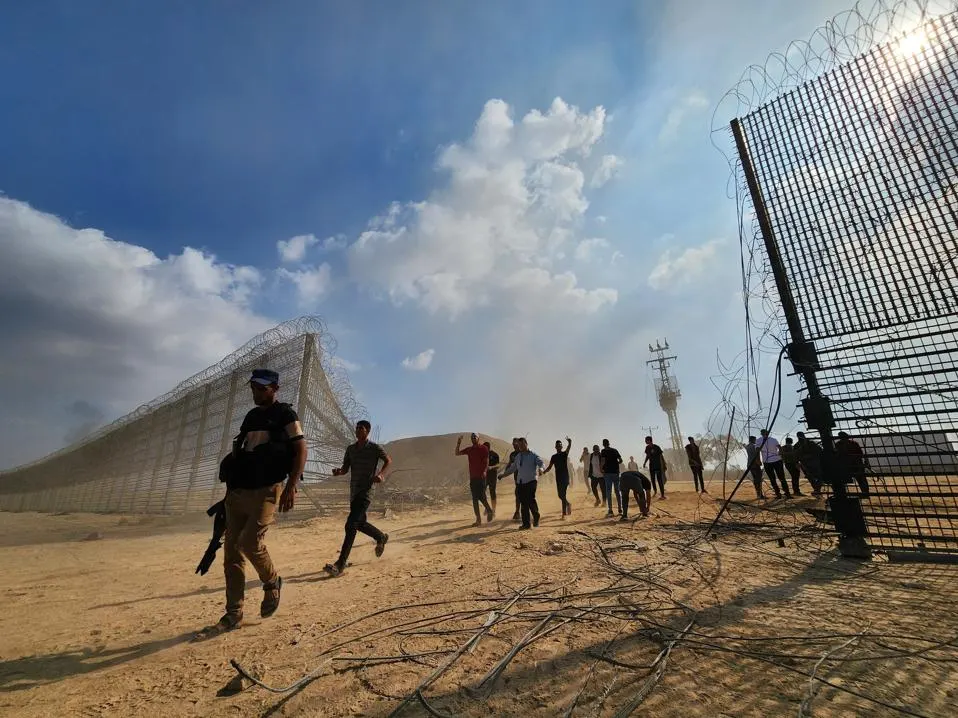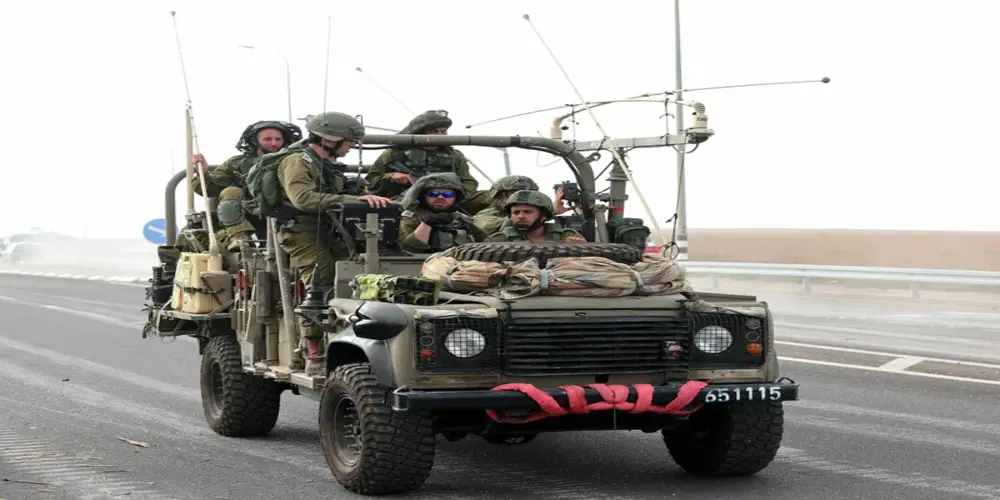The failure of Israel’s Intelligence and security services to anticipate and counter the large-scale attack by Hamas has raised critical questions about their preparedness and vigilance. This unprecedented assault, orchestrated by the Palestinian terrorist group, caught Israel off guard and resulted in significant casualties.
Reports indicate that approximately 1,000 Hamas terrorists executed a highly coordinated attack, targeting both civilian and military objectives within Israel. The scale and intensity of the assault were unlike anything previously witnessed, resulting in considerable devastation.

Israeli media reports confirm that at least 800 Israelis lost their lives, and more than 2,200 sustained injuries. In response, Israel launched air strikes on Gaza Strip targets, resulting in over 400 Palestinian casualties and more than 2,300 injuries. As the conflict continues, the death toll is expected to rise.
Bruce Hoffman, a senior fellow specializing in counterterrorism and homeland security at the Council on Foreign Relations, remarked, “No national intelligence agency is omniscient or flawless, but this is just a colossal failure. It’s just astonishing that this could occur”.
Israel had long prided itself on the effectiveness of its intelligence, advanced border fence and underground wall near Gaza. However, on this fateful day, Hamas fighters managed to breach the border fence at least once, using explosives and heavy equipment, as evidenced by videos from the scene. Additionally, terrorists executed an amphibious operation on the Mediterranean Sea and utilized paragliders to infiltrate approximately two dozen locations within Israel.
The terrorist group also launched thousands of rockets, surprising Israel’s highly regarded intelligence agencies and surveillance system. Israel’s capacity to intercept phone communications in Gaza and its extensive network of informants in the region had fostered expectations of enhanced security measures.
Lt. Col. Richard Hecht, a spokesperson for the Israel Defense Forces, admitted, “We were surprised this morning. About failures, I prefer not to talk at this point right now. We’re at war. We’re fighting”.
Former Israeli National Security Advisor Eyal Hulata emphasized that Hamas had been planning this attack for a considerable period. He described it as a meticulously coordinated assault that tactically surprised Israel, resulting in devastating consequences.
The Diverted Attention of Israeli Intelligence
In recent months, a significant portion of the Israel Defense Forces’ focus had been directed towards the West Bank. Here, battalions of young Palestinian men had initiated their campaign against Israeli occupation, diverting the attention of Israeli intelligence and security forces.
Hoffman, who has dedicated four decades to studying Israeli-Palestinian relations, noted, “The West Bank was consuming their attention.”

Israeli forces seen in front of the Dome of the Rock, within the Al Aqsa Mosque Compound in Jerusalem on September 10, 2021
Compounding this diversion, Israeli officials had been preoccupied with escalating tensions surrounding the Al-Aqsa Mosque. This holy Muslim site in Jerusalem is also sacred to Jews as the Temple Mount. In April, Israeli police conducted raids on worshippers, triggering widespread outrage and protests. Consequently, assets and resources were reallocated to monitor events in Jerusalem, further straining the intelligence apparatus.
Domestic Divisions and Opportune Timing
Internally, Israel had been grappling with deep-seated political divisions and contentious issues. In July, the Israeli parliament passed measures to prevent judges from striking down government decisions on the grounds of being “unreasonable”. These changes, championed by Prime Minister Benjamin Netanyahu’s far-right government, sparked public outrage and mass demonstrations. Additionally, some of Israel’s military reserve members had recently refused to report for duty, although they have since reported for duty during the ongoing crisis.
Hoffman asserted that it was unsurprising for Hamas to launch an attack during such a polarized period. “They strike precisely when they sense an opportunity”, he explained, “When they see a gap generally in their enemy’s defenses, generally caused by distraction or preoccupation with other threats or challenges”.
The Perfect Storm: Timing and Tactics
The assault took place during the Jewish Sabbath and in the early hours of the Simchat Torah holiday. Israeli soldiers guarding the border reported on social media that terrorists overran their base, resulting in casualties. Fewer troops were on duty due to the Jewish holiday, exacerbating the vulnerability.
Over the past decade, Hamas has primarily targeted Israel with rocket attacks. Consequently, Israeli forces stationed around Gaza were ill-prepared for a ground assault.

Hoffman expressed, “They weren’t at all battle-ready”. He emphasized that there was a sense of complacency due to the perceived calm along the Gaza border. Nevertheless, he acknowledged that the sheer scale and complexity of the attack were beyond imagination and overwhelming.
Hoffman, describing Israel’s intelligence as “second-best” to the U.S., highlighted that Hamas’ combination of air, land, and sea attacks was “unprecedented” for recent terrorist groups. Israel and the United States classify Hamas, the governing body in the Gaza Strip, as a terrorist organization.
Reflecting on the Israel Intelligence and ground situation, Hoffman concluded, “I can’t recall any time where a group was able to put them together and stage a simultaneous coordinated assault using all three venues.”




